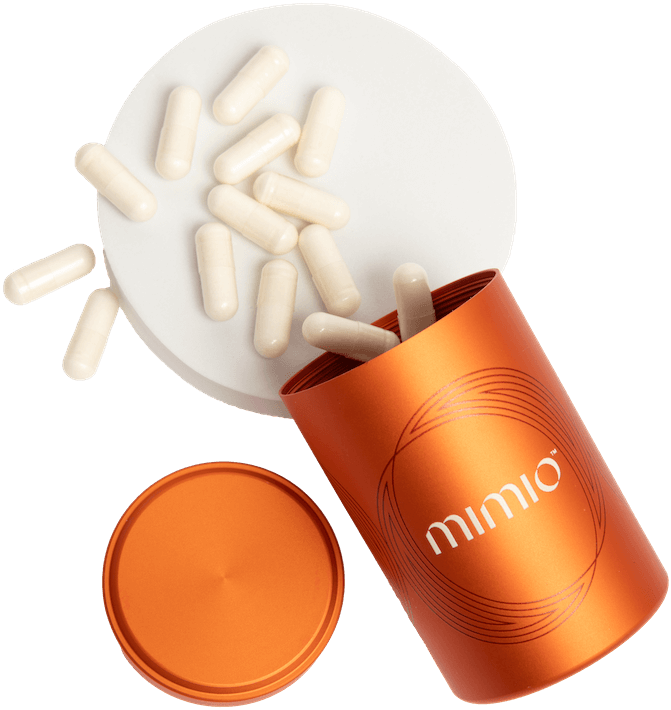How To Know If Your Metabolism Is Fast Or Slow: Measuring Your Metabolism
Ever wondered why some people seem to eat all they want and never gain a pound, while others count every calorie and still struggle? It’s not magic – it’s metabolism. Understanding whether your metabolism is fast or slow is key to unlocking your health potential. Let's dive into the nitty-gritty of measuring your metabolism and finding out where you stand.
What is Metabolism?
Metabolism is the process by which your body converts what you eat and drink into energy. This biochemical process involves a series of reactions that break down the nutrients in your food to generate energy. Your metabolism affects your basal metabolic rate (BMR), which is the number of calories your body needs to maintain basic physiological functions like breathing, circulation, and cell production.
Signs of a Fast Metabolism
- Increased Appetite: People with fast metabolisms often feel hungry throughout the day because their bodies burn through food quickly¹
- Trouble Gaining Weight: Despite consuming a lot of calories, those with fast metabolisms may find it hard to gain weight²
- High Energy Levels: A fast metabolism can mean more energy and less fatigue³
- Frequent Bowel Movements: Faster digestion can lead to more regular bathroom trips⁴
Signs of a Slow Metabolism
- Fatigue: Low energy levels can be a sign of a slow metabolism⁵
- Weight Gain: Even with normal food intake, a slow metabolism can lead to weight gain⁶
- Difficulty Losing Weight: Those with slow metabolisms might find it tough to shed pounds despite dieting and exercising⁷
- Feeling Cold: Metabolism generates heat; thus, a slow metabolism can make you feel colder than usual⁸
Measuring Your Metabolism
Wondering “how do I measure my metabolism? No problem - we’ve provided 4 different metabolism measurement methods below:
Basal Metabolic Rate (BMR) Calculation:
Indirect Calorimetry:This test measures the amount of oxygen you consume and the amount of carbon dioxide you exhale. It provides an accurate measurement of your BMR
Thyroid Function Tests: Thyroid hormones significantly influence metabolism. A simple blood test can determine if your thyroid is functioning properly
Body Composition Analysis: Tools like DEXA scans or bioelectrical impedance analysis (BIA) can measure your muscle mass and body fat percentage, which can provide insights into your metabolic rate
Factors Influencing Metabolism
- Age: Metabolism slows down as you age due to loss of muscle mass and hormonal changes
- Gender: Men generally have a faster metabolism than women because men generally have more muscle mass than women
- Genetics: Your genetic makeup plays a significant role in determining the speed of your metabolism
- Muscle Mass: More muscle mass means a higher BMR because muscles burn more calories than fat, even at rest
- Hormonal Imbalances: Conditions like hypothyroidism or hyperthyroidism can slow down or speed up metabolism
How to Boost Your Metabolism
- Build Muscle: Strength training exercises can increase your muscle mass and boost your BMR, and as such make your body work harder and faster⁹
- Eat Protein-Rich Foods: Protein has a higher thermic effect than fats or carbohydrates, meaning your body burns more calories digesting protein¹⁰
- Stay Hydrated: Water is essential for all metabolic processes. Dehydration can slow down your metabolism¹¹
- Eat Small, Frequent Meals: Eating every 3-4 hours can keep your metabolism active throughout the day¹²
- Get Enough Sleep: Lack of sleep can negatively affect the hormones that regulate your metabolism¹³
- Drink Green Tea: Green tea contains compounds that can temporarily boost metabolism¹⁴
- Intermittent Fasting: Short periods of fasting can enhance metabolic health and increase fat burning¹⁵
Mimio’s Role in Metabolic Health
Mimio’s biomimetic supplements are designed to help you harness your body’s natural abilities, which can have a meaningful impact for those looking to enhance their metabolisms. Mimio offers scientifically-backed solutions that mimic the effects of fasting, supporting metabolic health, energy levels, and overall wellness.
By understanding and measuring your metabolism, you can tailor your lifestyle and diet to better suit your body’s needs, leading to improved health and vitality. Whether you have a fast or slow metabolism, the key is to find a system that works for you and supports your overall health and well-being.
To learn more about Mimio’s groundbreaking metabolic health supplements, visit Mimio Health.
Related Blog Articles for further readings:
“10 Benefits of 36-Hour Fasting: Everything You Need to Know!”
“How To Boost Your Metabolism: 20 Habits To Try”
“10 Ways You Can Reset Your Metabolism”
References
¹ Melanson, K. J., Dwyer, J., & Roberts, S. B. (2004). Effects of meal size and frequency on dietary thermogenesis and glucose and lipid utilization in humans. International Journal of Obesity, 28(10), 1347-1353.
² Yang, M. U., & Van Itallie, T. B. (1976). Variability in body protein loss during caloric restriction: role of triiodothyronine and other possible determinants. The American Journal of Clinical Nutrition, 29(8), 870-876.
³ Tremblay, A., & Chaput, J. P. (2009). Adaptive reduction in thermogenesis and resistance to lose fat in obese men. The British Journal of Nutrition, 102(4), 488-492.
⁴ Marteau, P., Flourie, B., Cherbut, C., Pochart, P., & Bouhnik, Y. (1990). Digestive and metabolic consequences of ingestion of indigestible carbohydrates. European Journal of Clinical Nutrition, 44 Suppl 1, 1-10.
⁵ Tataranni, P. A., & Ravussin, E. (2002). Energy metabolism and obesity. The International Journal of Obesity and Related Metabolic Disorders, 26 Suppl 2, S5-7.
⁶ Rosenbaum, M., & Leibel, R. L. (2010). Adaptive thermogenesis in humans. International Journal of Obesity, 34 Suppl 1, S47-S55.
⁷ Astrup, A., & Finer, N. (2000). Redefining type 2 diabetes: 'diabesity' or 'obesity dependent diabetes mellitus'? Obesity Reviews, 1(2), 57-59.
⁸ Speakman, J. R., & Selman, C. (2003). Physical activity and resting metabolic rate. Proceedings of the Nutrition Society, 62(3), 621-634.
⁹ Phillips, S. M., & Winett, R. A. (2010). Uncomplicated resistance training and health-related outcomes: evidence for a public health mandate. Current Sports Medicine Reports, 9(4), 208-213.
¹⁰ Westerterp-Plantenga, M. S., Lemmens, S. G., & Westerterp, K. R. (2012). Dietary protein - its role in satiety, energetics, weight loss and health. The British Journal of Nutrition, 108(S2), S105-S112.
¹¹ Boschmann, M., & Steiniger, J. (2003). Water-induced thermogenesis. The Journal of Clinical Endocrinology & Metabolism, 88(12), 6015-6019.
¹² Speechly, D. P., Rogers, G. G., & Buffenstein, R. (1999). Acute appetite reduction associated with an increased frequency of eating in obese males. International Journal of Obesity, 23(11), 1151-1159.
¹³ Knutson, K. L., Spiegel, K., Penev, P., & Van Cauter, E. (2007). The metabolic consequences of sleep deprivation. Sleep Medicine Reviews, 11(3), 163-178.
¹⁴ Hursel, R., & Westerterp-Plantenga, M. S. (2010). Thermogenic ingredients and body weight regulation. International Journal of Obesity, 34(4), 659-669.
¹⁵ Anton, S. D., Lee, S. A., Donahoo, W. T., McLaren, C., Manini, T., Leeuwenburgh, C., & Pahor, M. (2011). The effects of time restricted feeding on overweight, older adults: a pilot study. Nutrition and Healthy Aging, 4(3), 225-232.



